
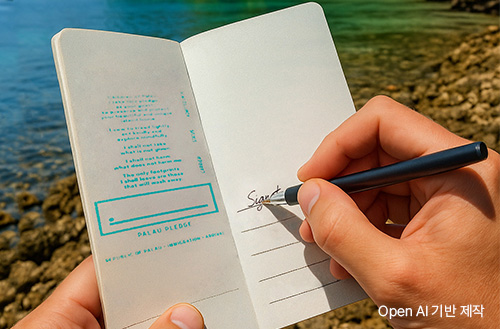
-
-
- 메일 공유
-
https://stories.amorepacific.com/en/amorepacific-what-if-your-summer-vacation-could-change-oo
What If Your Summer Vacation Could Change OO?

Columnist
Myung-kwan Son CSR Team

#INTRO
As June ushers in the beginning of summer, that exciting question starts to surface: “Where should I go for summer vacation this year?” Just escaping daily routines and heading somewhere new is enough to lift our spirits. In recent years, however, climate change and ESG considerations have been quietly but unmistakably reshaping the way we travel.
As we enter this new era, let’s explore what’s disappearing and what’s emerging, and consider together what new meaning this summer vacation might hold for us.
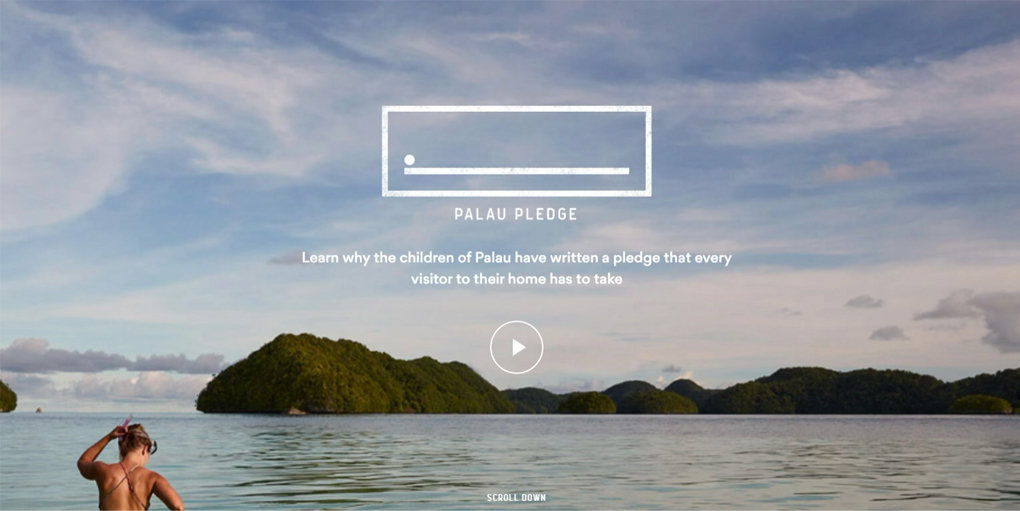
Source: Palau’s Official Environmental Protection Campaign Site
1 What’s Disappearing
1) Hotel Disposable Amenities
Since 2024, South Korea has restricted hotels with 50 or more rooms from providing disposable items, such as toothbrushes and shampoo. Many countries, including Spain, are following the trend of banning single-use amenities. In response, global hotel chains like Marriott, Hyatt, and Hilton are switching to refillable bulk dispensers for in-room shampoo and body wash.
While we understand this change is for the environment, it indeed feels somewhat disappointing. Yet as we naturally pack toothbrushes and personal toiletries in our travel bags, we’re realizing how accustomed we’ve become to these changes.
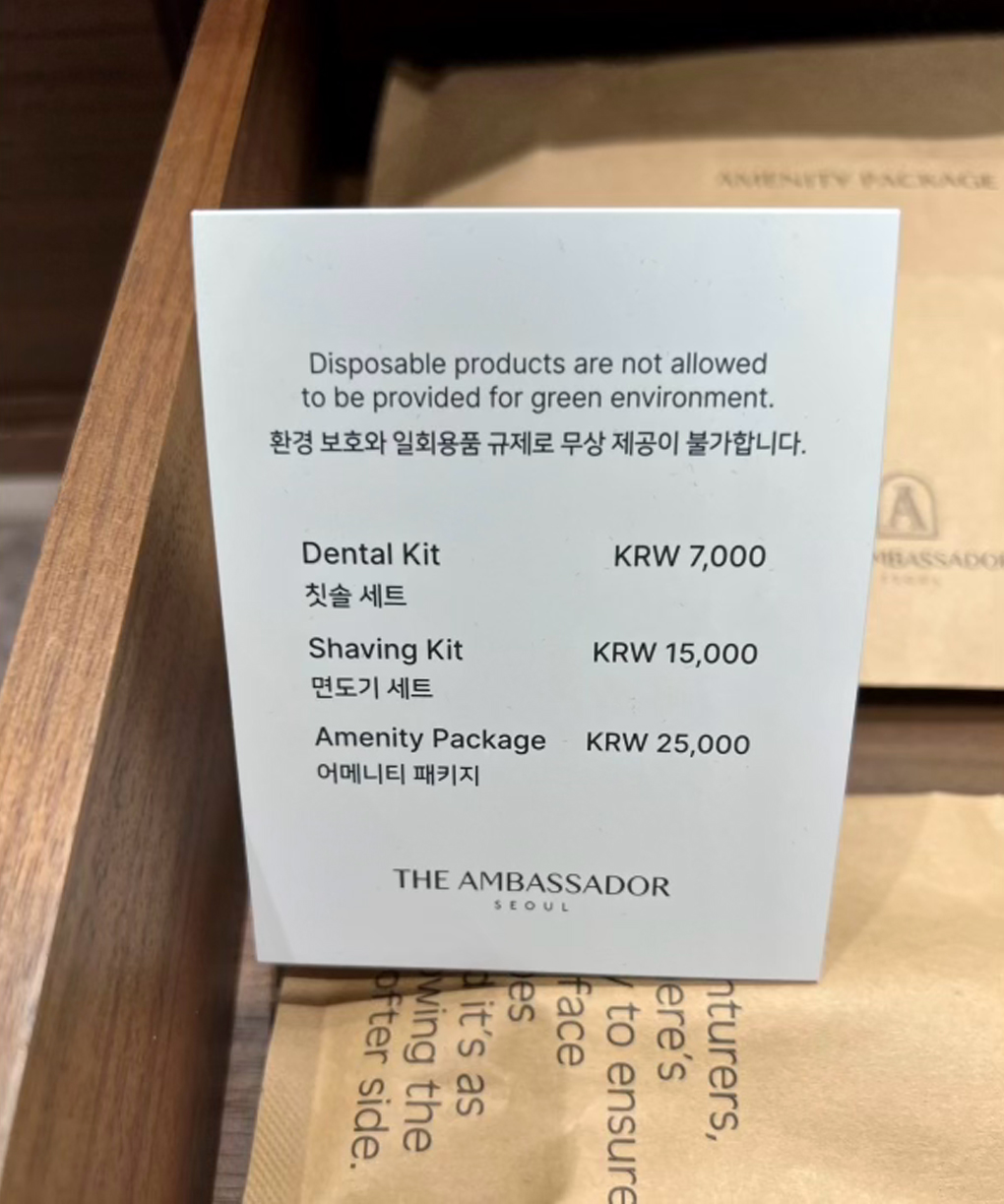
Source: New Daily
Don’t forget to pack your toiletries when you travel!
2) The Maldives Islands
Due to climate change, sea levels are rising at approximately 4 mm per year (based on the IPCC Sixth Assessment Report). This poses a grave threat to island nations like the Maldives, where the average elevation is only 1.5 meters above sea level. Experts warn that if current trends continue, about 80% of the Maldives could be underwater by 2100.
Meanwhile, Indonesia’s capital, Jakarta, is experiencing land subsidence of over 7 cm annually due to overpopulation and the impacts of climate change. Projections suggest that one-third of the city could be flooded by 2050. In response, the Indonesian government is actively pursuing plans to relocate the capital.

Source: IPCC AR6 Synthesis Report
Global sea levels rising approximately 4mm annually
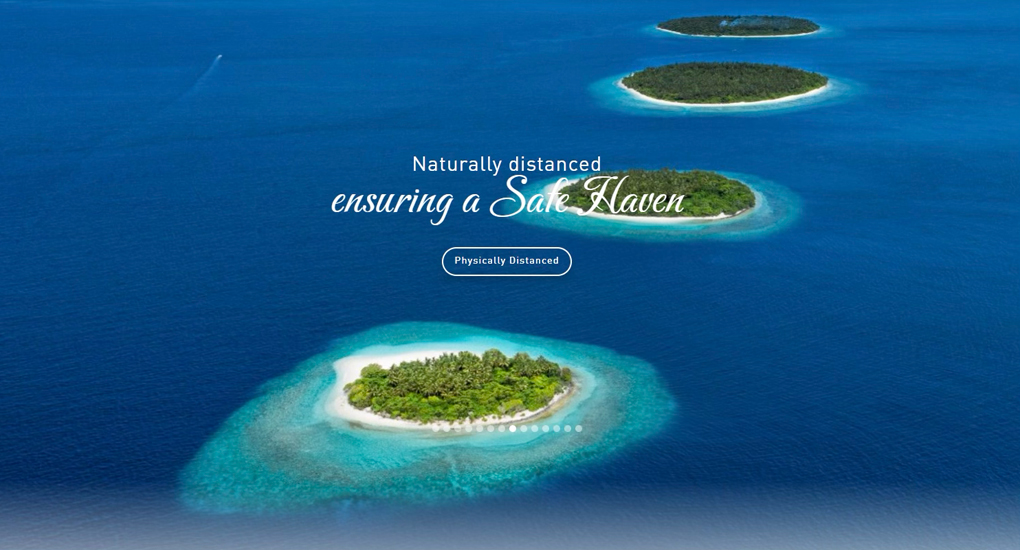
Source: Ministry of Tourism Maldives
The Maldives islands at 1.5m above sea level
3) Animal Experience Tourism
Once-popular animal experience tourism, such as elephant riding and dolphin shows, is rapidly disappearing. As awareness of ethical consumption and animal welfare grows, many countries are moving to ban the commercial use of wild animals. France and the UK passed legislation in 2020 prohibiting wild animals from performing in circuses. This marks the beginning of a value shift—recognizing animals not as ‘entertainment’ but as ‘lives to be protected.’
Korea has also seen meaningful changes. Jedol, an Indo-Pacific bottlenose dolphin illegally captured and kept at Seoul Grand Park Aquarium in 2009, was released back into the waters off Jeju in 2012 thanks to efforts by civic groups and academics. Jedol now lives freely with his pod, and the exhibit where he was once kept has been transformed into ‘Dolphin Memorial,’ serving as a marine ecology education space.
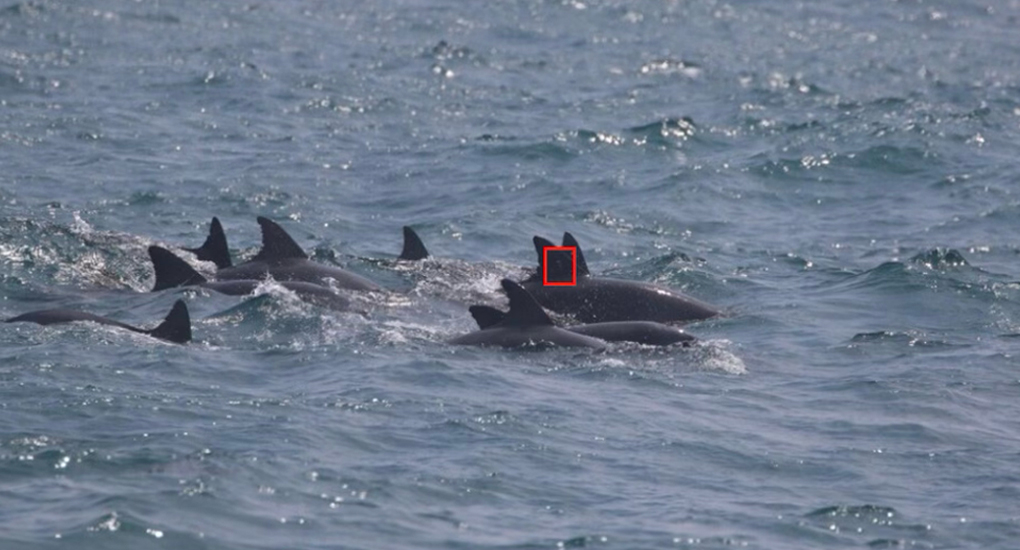
Source: News Penguin
Jedol’s 2024 ID photo. Swimming freely in the Jeju sea with friends
(White number 1 mark on the fin in the red box indicating Jedol)
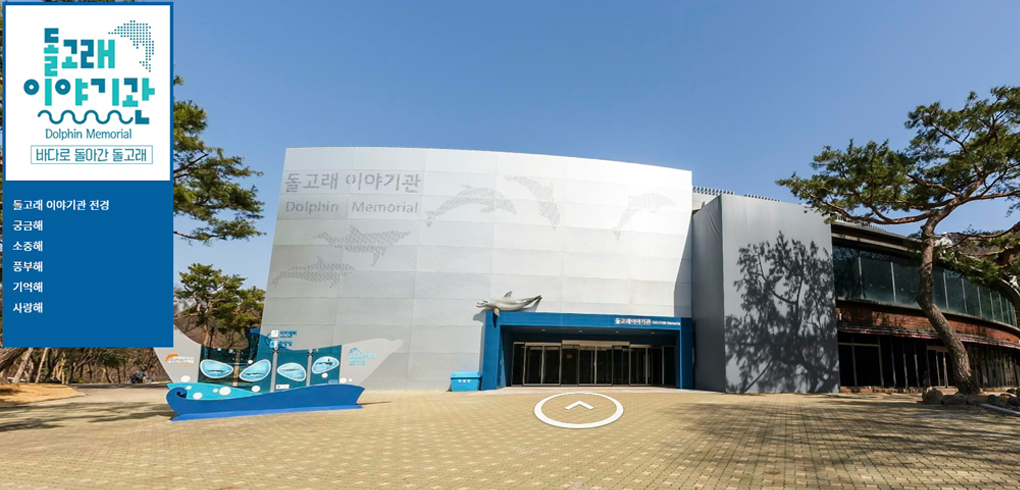
Source: Seoul Grand Park Website
The dolphin show venue where Jedol was kept has been transformed into Dolphin Memorial to commemorate the conservation of marine ecosystems and animal welfare.
2 What’s Emerging
1) The Traveler’s Pledge
When entering Palau in the Western Pacific, visitors receive an environmental protection pledge stamp in their passport and must sign it personally. This pledge, beginning with “For the children of Palau,” contains a vow to preserve and protect the beautiful island. It has gained attention as the world’s first official environmental entry pledge. Similarly, New Zealand’s ‘Tiaki Promise’ encourages tourists to pledge to protect the country’s natural environment and cultural heritage. These efforts represent a conscious shift in perspective, transforming tourists from mere ‘visitors’ into guardians who work together to protect nature.
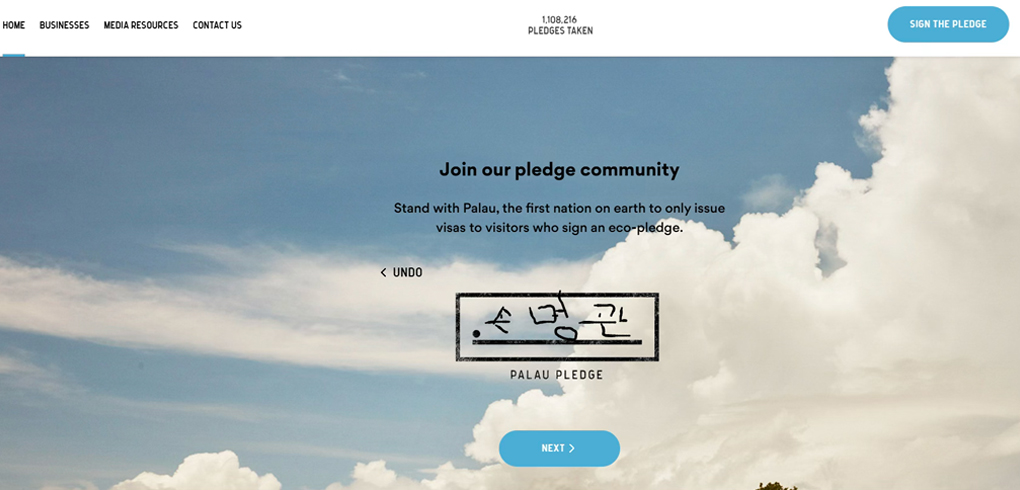

Source: Palau Pledge Website
2) Natural Tourist Sites Taking Sabbaticals
Thailand’s Maya Bay, made famous as the filming location for Leonardo DiCaprio’s “The Beach,” attracted massive crowds after the movie’s release. However, when the resulting environmental damage became severe, it was completely closed for three years starting in 2018. Since reopening in 2022, the site designates August and September each year as ecological restoration periods, during which tourist entry is prohibited. This practice isn’t limited to Maya Bay. The Philippines’ Boracay Island and Jeju’s Halla Mountain, as well as Baeknokdam, also implement periodic ‘sabbaticals,’ restricting tourist access while conducting ecological conservation and environmental cleanup work.
If you’re planning to visit destinations renowned for their natural beauty, it’s essential to check accessibility in advance. This is the first step toward becoming a traveler who practices a sustainable relationship with nature, going beyond simple sightseeing.

Source: Phuket Regional Information Website
(Article on Maya Bay remaining closed for environmental recovery)
3) Environmental Conservation Fees
While traveling to beautiful natural destinations is always enjoyable, popular tourist spots increasingly suffer from environmental damage and community fatigue due to overtourism. In response, destinations worldwide are introducing ‘environmental conservation fee’ systems, spreading efforts to offset the burdens created by tourism.
Bali, Indonesia, has been charging foreign tourists an environmental conservation fee of approximately $10 since 2024, with revenues used for nature protection and local community development. Hawaii plans to introduce a ‘Green Fee’ system starting in 2026, imposing accommodation taxes up to 11% to secure funding for climate change response and ecosystem protection. Jeju Island is also actively considering implementing a fee system to mitigate the environmental impact of its 15 million annual visitors.
These measures can be interpreted not simply as taxes, but as investments in sustainable tourism. It’s an era where we must share responsibility for protecting the value of the beautiful nature we enjoy.
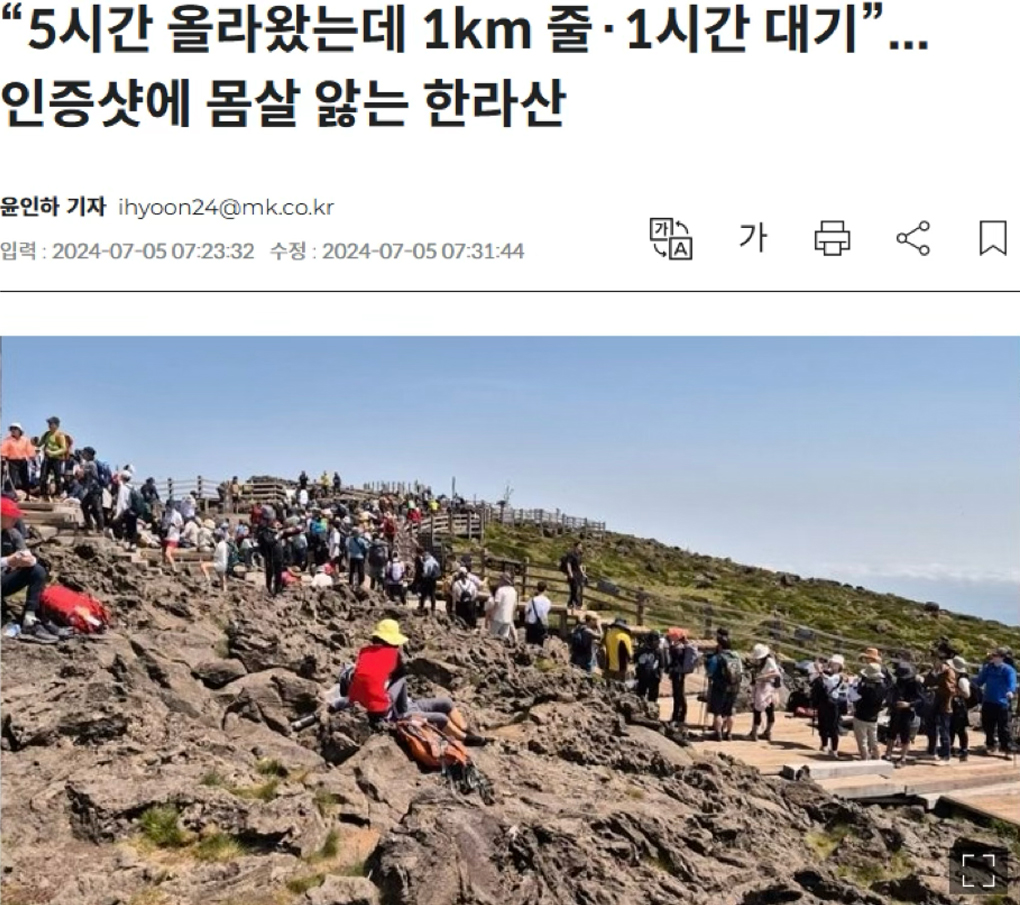
Source: Maeil Business Newspaper
“Climbed for 5 hours to face a 1km line and 1-hour wait”...
Halla Mountain suffering from photo-seekers
4) Eco-Friendly Hotel Rooms and Events
Hotels are also offering various packages to practice ESG. For guests staying two nights or more, some hotels offer small discounts on room rates in exchange for not changing bed linens. This approach saves water and energy consumed in the laundry process. Other establishments are introducing eco-friendly amenities, rooms, and experiences.

Source: Grand Walkerhill Seoul
Vegan rooms that exclude animal products from interior design to food and minimize environmental harm
5) Trail Travel
Instead of using rental cars, travel options that rely on our own two feet are on the rise. Trail travel is a prime example. Walking alongside nature, experiencing village life, and enjoying carbon-free travel truly represents a model for sustainable tourism.
If you’re considering trail travel this year, I recommend Jeju Olle Trail Route 14-1. As you explore the Jeoji Art Information Village, pass through the gotjawal forests and oreum volcanic cones, and follow paths winding through verdant tea farms, you’ll find both your mind and breathing naturally settling. When you pause mid-walk to gaze at the tea fields stretching out before you, you’ll experience a genuine respite from daily life. And stopping by the OSULLOC Tea Museum to slowly savor a cup of Jeju green tea creates a more lasting impression than any luxurious trip could offer.
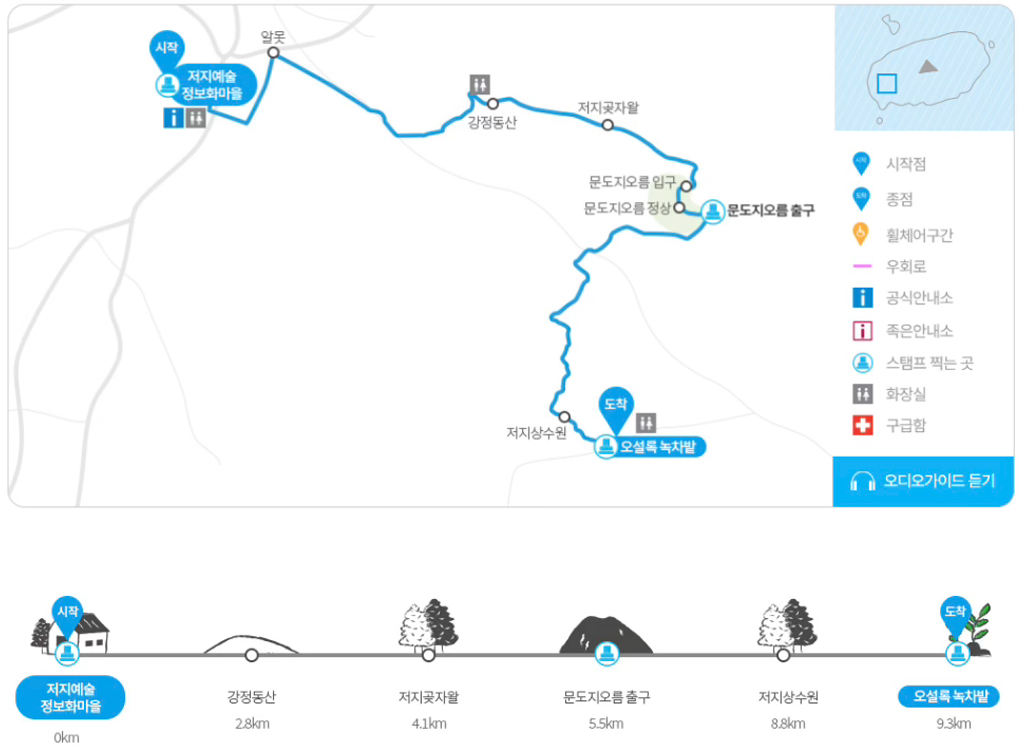
Source: Jeju Olle Trail Website
Jeju Olle Trail Route 14-1 (Jeoji Art Information Village ~ OSULLOC Tea Farms)
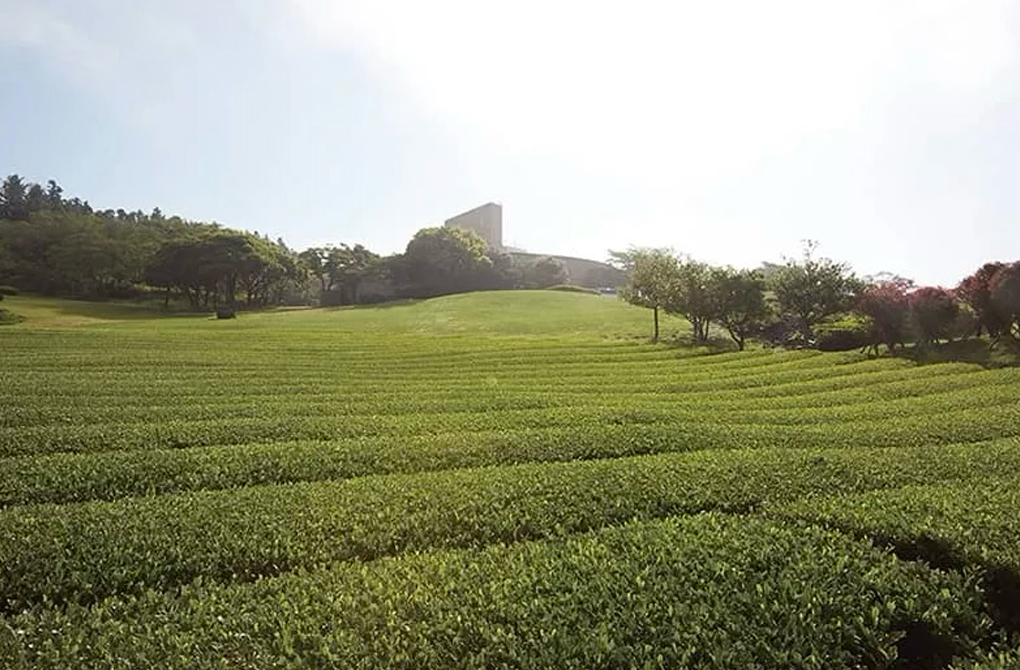
Source: OSULLOC Official Website
A View of the OSULLOC Tea Museum
#OUTRO
Future travel may require a bit more consideration and thought than it does now. While climate change is an unavoidable reality, it’s certainly hopeful that better ways of traveling are quietly emerging within this context.
Travel that goes beyond simply departing to reflect on the places we’ve stayed. If we see more travel that brings together nature and people, regions and cultures, the landscapes we love will remain with us longer and more beautifully.
How about making this summer the starting point for that kind of journey?
-
Like
0 -
Recommend
0 -
Thumbs up
0 -
Supporting
0 -
Want follow-up article
0





